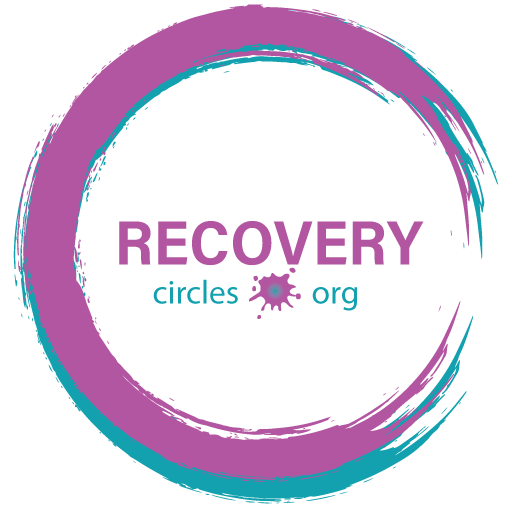Trauma-Informed Care
Struggling with opioid addiction? Reach out to us or keep reading to learn how Sober House Philadelphia can support you on your journey to recovery.
You can also call us at (267) 412-3258
Featured In





“
I finally feel like I have a future. These people believed in me when I couldn’t.
– John L.
“
What I found here wasn’t just recovery housing in Philadelphia, it was a group of people who truly cared if I succeeded. They held me accountable and helped me rebuild.
– Tony F.
“
As a single mom, I needed a place I could trust. This affordable sober home in Philadelphia gave me that and more. I’m forever grateful.
– Jasmine T.
See more of our success stories
When someone is overwhelmed by events or circumstances, they may experience trauma—responding with intense fear, helplessness, or horror. This severe stress response can impair their ability to cope and function effectively.
In the Philadelphia, approximately 70% of adults—around 223 million people—have experienced at least one traumatic event. Trauma has been closely linked to chronic health conditions such as heart disease, cancer, diabetes, COPD, and high blood pressure. At Sober Recovery Community, trauma-informed care is a core component of our approach. We are dedicated to understanding the unique needs of trauma survivors and providing compassionate support as they work toward healing and reclaiming stability in their lives.
You can also call us at (267) 412-3258
What Is Opioid What Is Trauma-Informed Care??
Trauma-Informed Care (TIC), as defined by mental health services administration, is a human-centered approach that acknowledges the widespread impact of trauma and seeks to actively respond to its effects. The National Center for Mental Health promotes TIC at an organizational level, advocating for a culture rooted in respect, empathy, and understanding for individuals who have experienced adverse childhood experiences, emotional abuse, traumatic stress, or substance abuse.
TIC emphasizes both physical and emotional safety, recognizing these as essential to injury prevention and overall mental well-being. This approach fosters sensitivity and awareness in care providers, encouraging them to consider the personal histories of those they serve—especially when those histories include trauma and related behavioral health issues.
By integrating trauma-informed principles, care environments become safe, empowering spaces where individuals feel seen and valued. Patients are reminded that their trauma does not define or diminish them, and they are provided with the compassionate support needed to heal and move forward.
Does Sober Recovery Community Offer Trauma-Informed Care?
Sober House Philadelphia works in close collaboration with its partner institution, The Heights Treatment, to implement a trauma-informed approach in delivering care and support to individuals affected by trauma. Through a comprehensive range of behavioral therapies and specialized trauma support programs, we strive to provide a safe, understanding, and empowering environment for healing.
Our goal extends beyond individual treatment—we are committed to educating our clients, their families, and the broader community about the far-reaching impact of trauma. By sharing this knowledge, we aim to foster awareness, encourage healing, prevent cycles of violence, and promote well-being, particularly for those experiencing secondary traumatic stress as a result of ongoing exposure to trauma.

Sober Livings

Outpatient Treatments

Individualized Intensive Program

Sober Companions
Cities We Serve
What Are The Principles Of Trauma-Informed Care?
It revolves around six guiding principles that shape how systems address patient care and help fine-tune an organization’s overall approach to trauma. These principles ensure that trauma-informed care is consistently compassionate, safe, and responsive to the needs of those affected by trauma.
Security
Patients must feel secure at all times when in the care of physicians and other healthcare personnel, as a sense of safety is the foundation for building trust and facilitating healing in trauma-informed care.
Transparency and Integrity
Establishing honesty and trust is essential in trauma-informed care, as it helps patients feel safe, valued, and respected—laying the groundwork for meaningful therapeutic relationships and effective healing.
Peer Support
Health providers must recognize the wide range of traumatic experiences that can impact patients and understand how these may influence behavior and treatment outcomes. Additionally, it is crucial that medical professionals have access to therapy and paid time off to manage their own stress and prevent burnout, which in turn helps create a safer, more supportive environment for trauma-affected patients.
Mutual Collaboration and Understanding
Patients and their healthcare providers should collaborate to enhance trauma-informed care by identifying practices and strategies that support a compassionate and effective treatment environment. This partnership fosters mutual respect and helps shape care approaches that are sensitive to the unique needs of trauma-impacted individuals.
Empowerment, Voice, and Choice
The voices of patients are essential in shaping an effective trauma-informed approach to treatment. Nurses play a crucial role in empowering and encouraging patients to take an active role in their health, helping them regain a sense of control and reducing the risk of re-traumatization.
Cultural Issues
Removing discrimination based on an individual’s background is essential for the success of any trauma-informed care program. Cultural differences must be acknowledged and respected, serving as one of the guiding principles in addressing each patient’s unique needs with empathy and inclusivity.
What Are The Benefits Of Trauma-Informed Care?
Trauma-Informed Care (TIC) helps patients build trusting relationships with their healthcare providers, while also reducing emotional exhaustion among professionals. It minimizes the risk of retraumatization, alleviates trauma-related symptoms, and enhances overall practices within the institution.
Preventing Re-Traumatization
Healthcare providers who pressure individuals to recount their trauma risk reactivating symptoms and potentially worsening their condition. This is why Trauma-Informed Care (TIC) must always be prioritized, ensuring that care is delivered with sensitivity, safety, and respect for each patient’s experience.
Promoting Safety In Patients
Building a haven for patients increases their willingness to engage in therapy and fosters honesty with healthcare providers, especially when it comes to openly expressing their thoughts and emotions.
Who Receives Trauma-Informed Care?
It’s important to recognize that Trauma-Informed Care (TIC) not only supports individuals and families dealing with trauma disorders, but also addresses the lasting impact of discrimination based on race, sexual orientation, or background.
Tailoring care approaches to each unique case helps prevent further psychological decline and reduces the risk of requiring long-term dual diagnosis or anxiety disorder treatment. A thorough trauma assessment by mental health professionals is essential to determine the most effective path forward—whether through addiction recovery programs or targeted behavioral therapies—to foster meaningful, lasting recovery.
How Does Sober Recovery Community Provide Mental Health Services?
In addition to providing sober living residences and support for substance abuse and mental health, Sober House Philadelphia is committed to practicing trauma-informed care for all clients. Every program is thoughtfully designed to support overall physical health and emotional well-being. These trauma-informed procedures may include teaching essential coping skills, engaging in physical activities, and offering spiritual services that help enrich clients’ lives long after their treatment concludes.
Sober House Philadelphia and its affiliated providers understand the vital role that education and trauma-informed principles play in fostering emotional safety, empowerment, and lasting recovery for every individual we serve.
Is There Trauma-Informed Care Near Me?
Sober House Philadelphia provides supplemental recovery services designed to support individuals on their journey to healing. While our primary location is in Philadelphia, we are deeply connected to a network of care, including partner programs in cities like Houston, New York, and Los Angeles. These facilities are well-equipped to offer compassionate care and essential support for trauma survivors and their families, ensuring each person receives the attention and resources needed for lasting recovery.
Call our recovery specialists at Sober House Philadelphia today at (267) 412-3258 or fill out our contact form to learn how joining our Philadelphia sober living community can help you reclaim your life. Whether you’re seeking clean and sober housing, structured transitional support, or simply someone to talk to — we’re here for you.
